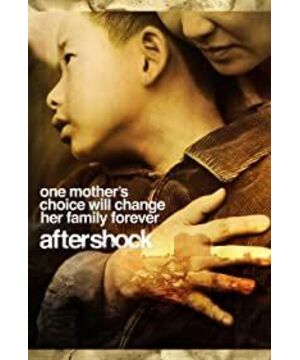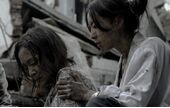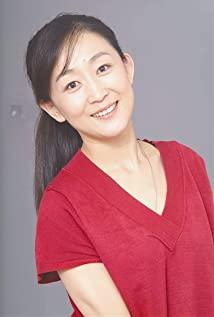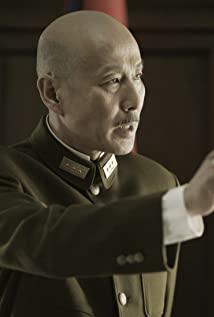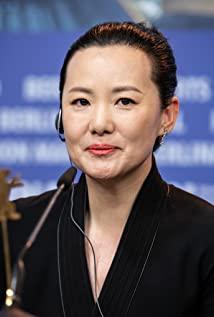After watching "Tangshan Earthquake", I remembered this allusion. Huayi Brothers’ publicity strategy is quite right. This film focuses on two main points: One is the special effects scene that is known to shake the world, and for this reason, IMAX is also brought in. The second is the crying points allegedly flooded in the film. Fa Ge said on the platform of "Confucius" that "not crying is not a person", this time Feng Xiaogang Pao directly compared people who were not touched by the "Tangshan Earthquake" with serial murderers in a bloodbath kindergarten-of course, the movie is in publicity During the period, the relevant main creative is like a beast in heat, and it has nothing to do to make headlines. Movies are a one-shot deal, and attracting attention is the number one priority at the moment.
Are you crying? It is estimated that the kindergarten guys will also cry. This is human nature. Sage Meng Ya said that people have five hearts. If this "heart of compassion" can be cultivated, it is the level of the extinction teacher-this kind of person is probably not. Pay for the movie theater. "Tangshan Earthquake" is not a disaster film in the sense of a genre film at all. Whether compared with the historical adaptation of "Titanic" or the fantasy "2012", "Tangshan Earthquake" is just a catastrophe in the sense of a genre film. The film must be a model of lone heroes saving the public (Hollywood has saved all mankind time and time again), but "Tangshan Earthquake" completely castrated the tall, big, and complete screen heroes. It is placed in the current domestic film pedigree. Not to mention that it is a coup of Feng Dao (see "The Earth Shaking").
The original novel was originally written about "Aftershocks" after the earthquake. The main content of the film and the English title are in line with the main narrative. However, the focus of the original narrative focused on the ruins of the surviving daughter's soul has been subtly transferred to the mother who has suffered a lot of grievances. . The mother played by Xu Fan suffered the tragic death of her husband and daughter, and was also burdened with the heavy psychological burden of murdering her relatives and daughters. She has passed the reform and opening up for thirty years - but it also accords with the psychological identity of the Chinese people. In fact, "Tangshan Earthquake" invisibly evoked the most distant tradition of popular drama in the history of Chinese film. Starting from "The Orphan Saves Ancestor", the routine of "family change + ethical salvation" ran across the creative consciousness of Chinese filmmakers (In the final analysis, it is the acceptance psychology of Chinese audiences), supplemented by the sensory touch that movies must have as a mass entertainment consumer product. The first generation director Zheng Zhengqiu summed up "adding a little conscience to businessism" is exactly this. This is the only way to create a routine, "The Great Tangshan Earthquake" is nothing more than conforming to this deep-seated cultural psychology of the Chinese people and developing it on a visual scale.
Therefore, don’t expect to see a heart-stirring history of the hearts and minds of the Chinese people in "The Great Tangshan Earthquake". The earth-shaking social changes in the new era are only better than no background embellishments (but this is crucial for implantable advertising) . The mother played by Xu Fan has suffered for thirty-two years, rejecting material comforts and refusing to rebuild her family. She is like a chastity martyr who obeys her filial piety in the old society, and she would rather have a mutilated (broken arm) son than a (miracle) healthy daughter. The plot also echoes the collective unconsciousness of Chinese patriarchal society for thousands of years. When the son brought his daughter-in-law and grandson to accompany his mother during the New Year, the son used a hegemonic tone to forcibly separate his wife and children. From the beginning to the end, the daughter-in-law was not an independent woman in the modern sense. , And the plot of a pair of children finally getting rich, Xu Fan's mother really has a match with Gao'e's "Langui Qifang" Li Wan.
"Tangshan Earthquake" was in a hurry, just like explaining the outline of a domestically produced long-term family ethics drama, but it was also enough. From the perspective of conforming to the psychology of the largest audience in China, "Tangshan Earthquake" is almost It is perfect: the number of bitter dramas and the happy ending. Compared with "Shrek 4" and "Foundation Laying", the penetration of "Tangshan Earthquake" to Chinese audiences is all-round (the first two are in the second and third lines) The city hardly causes any disturbances). I don't recommend "Tangshan Earthquake", but if I want to recommend a movie to my parents, I would still recommend this "Tangshan Earthquake"-and I will prepare a pack of tissues for my mother.
In the film creation environment guided by the market, the audience is the director's "Brezhnev". Chinese audiences are pure and kind. As long as they can make them cry hard, 500 million box office is no idiot. (Of course, there must be no lack of tacit cooperation with mainstream ideology).
Our fathers have suffered so much, letting them (especially those who witnessed the disaster) revisit them in the movie and then get out of it, is also considered to have done the filmmakers' filial piety.
In terms of box office alone-"Comrade Brezhnev" cried, "Tangshan Earthquake" laughed.
(Published in "Oriental Morning Post" July 22, 2010)
View more about Aftershock reviews


